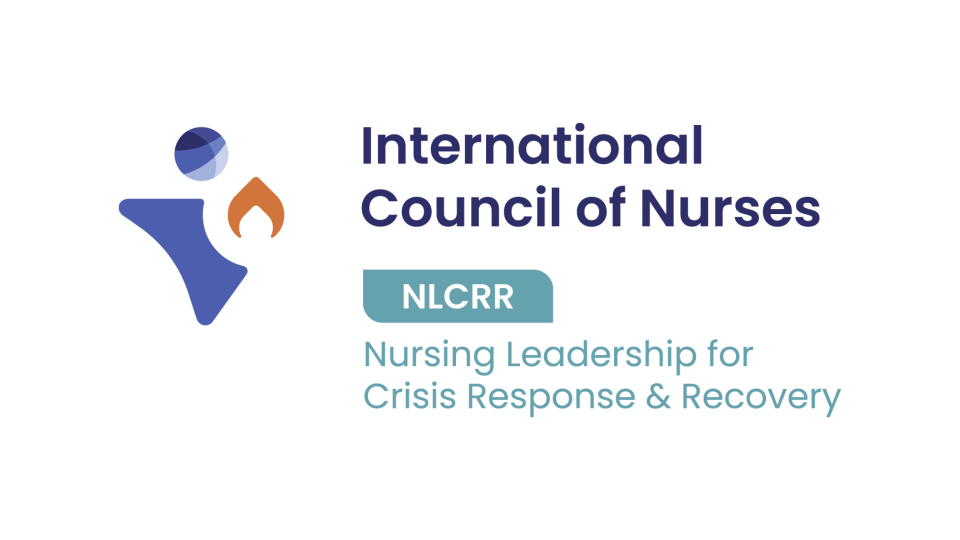ICN launches Nursing Leadership for Crisis Response and Recovery programme supporting Ukraine’s nurses

The International Council of Nurses (ICN) has officially launched the pilot version of the Nursing Leadership for Crisis Response and Recovery (NLCRR) programme, the latest in its efforts to promote and support leadership development as critical to building nursing capacity and strengthening workforces. ICN has several long-established and highly-regarded leadership initiatives, including Leadership for Change™ (LfC) and Global Nursing Leadership Institute™ programmes (GNLI). Because of the vital importance of nursing leadership, in recent years, ICN has added two new initiatives: first the ODENNA programme launched in 2021 to strengthen the leadership of National Nursing Associations (NNAs) and now this new NLCRR programme, which supports nurse leaders in conflict and crisis zones. ICN’s new Leadership Centre, rolled out at the Helsinki Congress, June 2025, brings together all of these leadership development initiatives.
This first edition of NLCRR is designed for Ukrainian nurses who have been at the forefront of healthcare delivery throughout the ongoing invasion and war with Russia and it will support 25 nurses working in leadership roles across Ukraine’s health care system with specialized training in crisis leadership, mental health support, communication, and healthcare recovery.
Participants are fully sponsored by ICN's Nurses for Peace (N4P) Humanitarian Fund and the NLCRR programme has been developed in close partnership with the Center for Nursing Development at the Ukrainian Ministry of Health as well as the World Health Organization’s Country office in Ukraine and the Regional Office for Europe.
The programme represents the latest step in ICN's #NursesforPeace initiative, which emerged from the global nursing community's overwhelming support for Ukrainian colleagues and has grown to become a central pillar of ICN’s humanitarian work supporting nurses and communities in conflict and crisis zones around the world.
ICN’s CEO, Howard Catton, addressed the cohort at the launch, telling participants:
"It is an enormous privilege for us to be able to do our first Nursing Leadership in Crisis Response and Recovery programme with Ukraine's courageous and talented nurses. At the centre of #NursesforPeace is nursing leadership and development because this is what strengthens the nursing profession and strengthens health systems in conflict and disaster.
‘Through your role and brave, skilled response, you have intimate knowledge of delivering care, the causes of ill health, and the unique health needs in disaster zones. Your experiences are central to disaster preparedness and recovery and by developing your leadership as a cohesive strong leadership network, we want to ensure that your voices are heard at every level of health care policy and that you shape disaster preparedness, response, and recovery. Dr Tedros often says that peace is the best medicine—and you, nurses, are the peacemakers bringing this medicine not only to your community but, in your leadership influence, to the wider world.”
Margrieta Langins, Nursing and Midwifery Policy Advisor for WHO Europe, which has supported the initiative, emphasized the programme's vital importance in meeting urgent leadership development needs. She highlighted its connection to Ukraine's nursing development strategy, based on the WHO Global Strategic Directions for Nursing and Midwifery recently reaffirmed by all 194 governments at the World Health Assembly, saying:
"The Strategic Directions emphasize leadership. We need to support strong diverse leadership and to build a pipeline which means that we are supporting the next generation to become leaders, as well as working to see more women in leadership. These challenges are more difficult because of the war that is now in its fourth year, and therefore another aspect of this course will be to understand how what you have seen during this war can teach us and teach you and your colleagues what is needed for nursing in terms of education, service delivery models, jobs, and leadership to strengthen capacity during emergencies.”
Participants also heard from Pavlina Guk, National Professional Officer for Nursing and Midwifery at WHO, and from senior members of ICN’s nursing team.
The programme will run for six months, during which time participants will gain immediate leadership skills and work towards implementing them in a long-term vision for healthcare reforms and resilience in the country. They will also strengthen their professional network by building lasting connections with peers and international experts.
ICN continues to strengthen its efforts for peace and humanitarian support, including through recent advocacy urging the UN Secretary-General to take action to promote peace and implement International Humanitarian Law to protect healthcare workers and facilities from attacks.
ICN’s Leadership Centre programmes include:
Leadership for Change™ (LfC), Global Nursing Leadership Institute™ (GNLI), GNLI Alumni, Organizational Development of National Nursing Associations (ODENNA), Bank of Nursing Experts (BNE), and Nursing Leadership for Crisis Response and Recovery (NLCRR).